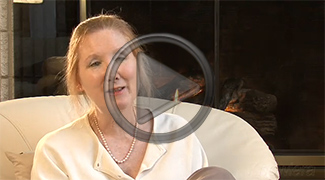
View these related videos:
Questions you should ask before saying I do (02:28)
How to avoid those deal breakers before saying I do (02:25)
Common red flags of a potentially bad engagement (02:55)
Telling the difference between wedding jitters or something more serious (02:55)
Talking about your relationship VS relating
The evening started out on a high note. They were eating at a favorite place and afterwards, would be going to hear a great band. Everything felt just right and then it wasn't. He made a "funny" and "innocent" comment--which she reacted very negatively to. He expressed surprise and impatience with her interpretation which she countered with an angry and defensive response. From there it escalated to the point that hurtful accusations were made by both, and the evening was cut short after raised voices, tears and silence. One partner broke the silence the next day, and this began a long discussion about the state of their relationship. If this were the first time this scenario had occurred, or if it were one that rarely or never happened, the discussion may have been shorter and a clear resolution would most likely have been reached after an honest sharing and explanation of feelings, expressions of regret, and remorse for hurtful behavior. However, it was part of a repeated pattern of a breakdown in communication followed by angry words, all leading to a talk about "our relationship."
When a couple spends a significant amount of time talking about the relationship instead of relating, a red flag should be thrown down. It might sound like an oversimplification, but when two people have to work hard to get along and enjoy one another, with limited success--they have a real problem that won't be solved by repeating this behavior over and over. All couples have disagreements and problematic issues that have to be dealt with. The key is in knowing where the line is between a healthy and mutually satisfying relationship and one that requires a large investment and returns low dividends.
It can be very frustrating to hear that every misstep we take is driven by an unconscious process, unmet needs, or false beliefs learned throughout our lives. If this were actually true, we would have little or no control over our decisions, and good outcomes would happen more by luck than by making healthy and wise choices. Everyone has the ability to develop their insight and gain a greater understanding of how their families of origin and past experiences have shaped them, thereby giving them the opportunity to "change their luck."
Take the case of the couple who spends most of their time together in conflict, followed by lengthy relationship examination. These two people met, saw things in each other that they found desirable and attractive, began dating, and at some point became a couple. Each step required decision making driven by an assessment of how well the relationship was working for them. Therefore it's safe to say that at least some of their needs were getting met.
The question then becomes, "what went wrong," or "what was wrong that they were unable to see?" Most likely their problems have to do with one or more of three common relationship killers. These are:
* An attraction based primarily on physical chemistry that needs to be enhanced by two other compatibilities over time, or it fades away.
* An attraction based on who they THOUGHT or WANTED this other person to be, not who they actually were.
* An attraction tied to expectations of what they thought this person could do to enhance and enrich their life, social status, and/or sense of self.
Again, using this couple as an example, we can use these three potential problems to illustrate how healthy relationships form.
If this couple were compatible in the three areas of relationship chemistry, physical, intellectual and emotional--it is unlikely that small misunderstandings would escalate into large conflicts. Instead, if a misunderstanding were to arise, it is likely they would be able to read each other better, share their feelings more openly, even the vulnerable ones, and have a strong "friendship" basis that would help them to maintain civility, respect and trust.
If this same couple truly accepted each other, warts and all, their expectations would be in line with reality, therefore minimizing the hurt and anger that surfaces when someone is "not who I thought they were."
If these two people were able to take responsibility for their own feelings, wants, disappointments and failures, instead of projecting this responsibility onto their partner--they would be much less likely to erupt in anger when something does not go according to plan, leads to a disappointing experience and/or contributes to feelings of sadness, emptiness, frustration or discomfort.
In other words, individuals who are seeking long term, healthy, and mutually satisfying relationships need to choose consciously with their heads, hearts, senses and gut. When someone feels really right on these different levels- they probably are.
Want to read other articles on this subject?
| List of more "Compatibility Issues" articles |
CONTACT INFORMATION
Toni Coleman, LCSW
Consum-mate.com
Phone: 703-847-1768
E-mail: Toni@consum-mate.com
Web: http://consum-mate.com
© Copyright 2008 Antoinette Coleman. All rights reserved.
Distribution Rights: The above material is copyrighted, but you may retransmit or distribute it to whomever you wish as long as not a single word is changed, added or deleted, including the contact information. However, you may not copy it to a web site.
Reprint permission will be granted, upon request, to student newspapers, universities, and other nonprofit organizations. Advance written permission must be obtained for any reprinting of this material in altered or modified form.
